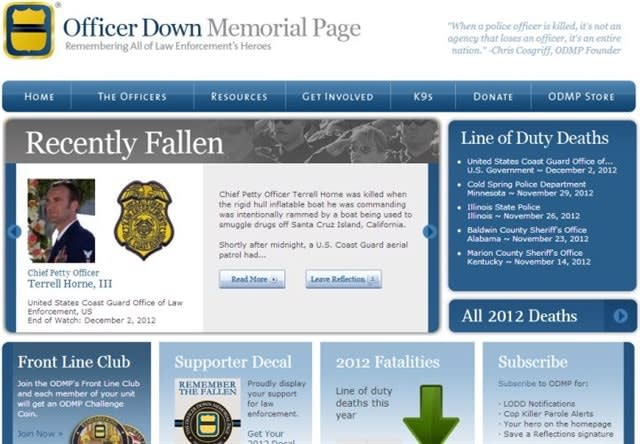My friend Kevin was recently promoted to sergeant and has started a novel practice during his roll calls. He reviews the Officer Down Memorial Page (ODMP) website and picks an officer who was killed in the line of duty.
He then talks about the officer and the circumstances that led to his death. He addresses what the officer may have done wrong and uses it as a teaching moment for personnel under his direction. He then asks the officers to dedicate that shift to the fallen officer. It's an outstanding way to honor our fallen officers. Their lives can help make ours safer.
I've always appreciated the value of veteran officers who can provide wisdom and direction to their agencies. They often have a wealth of knowledge and experience that may go untapped by department leaders who don't recognize or appreciate them.
These veterans can give us insight into how to provide better levels of service and avoid making unnecessary mistakes. By soliciting their ideas, they could guide their agencies on how to handle officers who develop bad habits or need direction on how to be a good officers. Their backgrounds allow them to offer useful suggestions on tactics, the development of policies, and how to better serve those we're sworn to protect.
These veteran officers are alive and working and available to us. But what about those who have died while "protecting and serving" who can't speak to us? As my friend is showing, they can offer us much to learn if we're willing to take the time to listen.
These officers who made the great sacrifice of their lives in service to others are treasures whose life experiences offer examples of how to live and work. When we look deeper into their lives beyond the specific causes of their deaths, we'll learn about the men and women who were fine fathers and mothers, committed friends, and brave individuals who believed in a cause greater than themselves.
We will be aware of their mistakes and hopefully try to avoid the same problems. We will also find out that certain habits or actions on the job can get us killed. The circumstances that cost them their lives may help us develop tactics and plans to avoid the same tragedy. It's very likely that we may be doing something on a daily basis that led to a family losing a father or mother in blue.
I'm confident that these special men and women who lost their lives would be very pleased to see that their sacrifice was not in vain. They can continue to serve their fellow man through the example of their lives and offer assistance to those of us still laboring to "protect and serve" others. God may allow them to work as he inspired Isaiah (chapter 42) when he said, "I will lead the blind on their journey; by paths unknown I will guide them."
My friend is definitely on to something with his new roll-call practice and I would encourage others to follow his lead. You should go even further in studying the lives of those who have made a great sacrifice for all of us. Visit the Officer Down Memorial Page to learn about those special men and women who gave so much.












